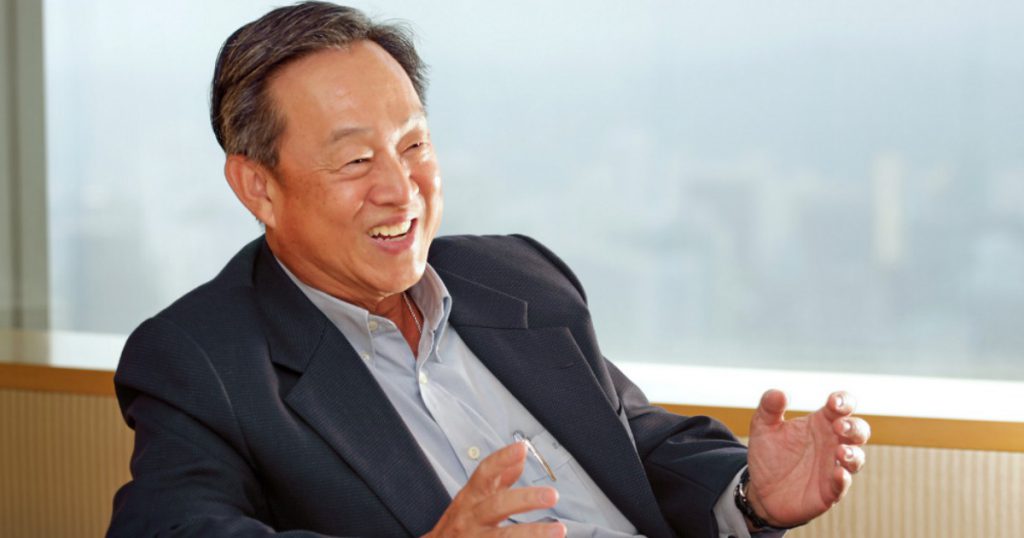Over the weekend, Channel NewsAsia sat down with the Lim Soon Hock, serial entrepreneur and private investor, and asked him for his thoughts about the future for SMEs and entrepreneurship in Singapore
A man most known for his success with Compaq, Lim was instrumental in raising its valuation from US$30million to US$1billion, and ahead of the company’s schedule.

He now invests his time as Founder and Managing Director of PLAN-B ICAG Pte Ltd, with a life mission to “turn businesses around through restructuring, acceleration, mentorship, and technology incubation.”
Because the entire interview was a bit TL;DR, we distilled the main learning points for you.
1. Believe In The Impossible, And Seize The Moments
Back in his days at Compaq, then-President and CEO Ekhard Pfieffer gave him the job of bringing the company up to a billion dollar valuation in a decade, a goal he achieved in 7 years.
Despite Lim’s trepidation about the Asian market, which at that time did not have the spending power to afford a Compaq, he found that creativity and the willingness to challenge rules can go a long way.
This value came into play when Lim was in China for work.
Tsinghua University in Beijing was where the bulk of politicians came from, and thus had a prestigious reputation. Lim took the initiative to forge a partnership with the university’s President, offering to set up a computer literacy program for them and promised to bring in Microsoft and Intel.
It was a spur-of-the-moment decision, and he “didn’t even clear it with his boss”.
It was however, also the move that allowed Compaq to leverage on Tsinghua’s reputation to seize the Chinese market.
2. Don’t Depend Too Much On Benefits And Grants
On his thoughts about the SME and the entrepreneurship scene in Singapore, Lim had this to say –
“We could have done better.”
Lim shares on his concerns about SMEs’ dependance on schemes and handouts, noting that the government “has been too generous and too kind in providing” them.
Although the financial woes are real, it is not a novel problem. Companies should already have taken steps to manage these costs earlier on before they became worrying.
Lim shares that they always “planned on the basis that there no subsidies or grants. It compels you to rethink how you would manage, develop and grow your business.”
Equity financing is an option, he shares, but companies need to have a very clear focus on their growth, and know how to manage their funds.
“Spend when needed and save when needed. To me it’s not about saving the dollar. It’s about how you spend the next dollar wisely to generate more than a dollar of revenue.”
3. Our Education Is Not Fostering True Entrepreneurship
Entrepreneurship in formal education can be taken up at polytechnics and universities, but it is not available nationwide. To Lim, that presents a major problem.
Singaporeans are taught to think out of the box and come out up beautiful slides showcasing their ideas, but when he brought up the fundamental question – “What business are you in?”, Lim shares that many fail to answer.

“My view is that if we truly believe that entrepreneurship is going to be a very important pillar of our future economy, then I think we should introduce entrepreneur education nationwide.
It has to be a structured programme where students are put through the entire process, the entire journey, the entire cycle of developing a business.”
4. In Today’s Economy, Skills > Qualifications
Lim once told a minister, “if our next PM was not somebody from the elite admin service, but completely an ordinary person with special skills”, Singapore would have already arrived.
The education and parental emphasis on academic brilliance is so high, but Lim claims that all we need are people who are “academically well-developed”.
He praises the SkillsFuture system, noting that “there is value in all these non-academic capabilities”, and that in today’s economy, it’s not about the qualifications, but skills.

“It’s about the ability to get things done, the ability to innovate, the ability to create and you don’t have to be academically brilliant to be creative and innovative.”
5. “Businesses Do Not Fail, People Do.”
People are the greatest assets, and it is absolutely vital that Singaporeans are inculcated with the proper mindset about failure – that it’s not a bad thing.
“In Silicon Valley right now, the badge of honour is failure.”
When a business fails, it’s not about you, “it just means wrong business, wrong choice, execution, but there are valuable lessons to learn.”
You can read the full interview transcript here.
Feature Image Credit: Medium










